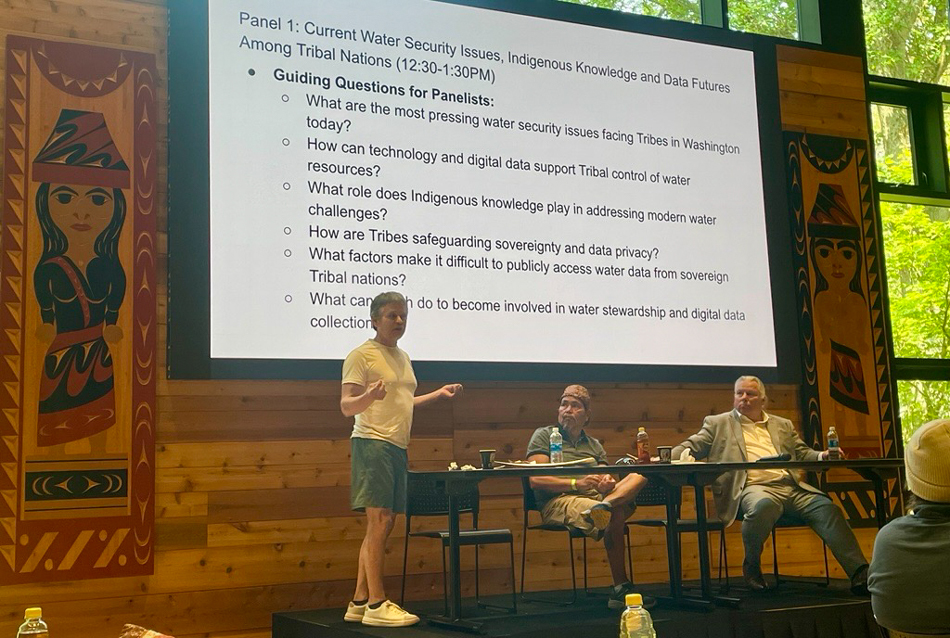Tribal youth leaders from across the Northwest gathered at the University of Washington on Aug. 14 to learn how to advocate for their communities’ water resources.

The iSchool’s Clarita Lefthand-Begay, Diné, hosted the Tribal Youth Water Summit. Themed “Sustaining Waters, Sustaining Knowledge–Tribal Water Security in a Data-Driven Future,” the daylong event featured conversations that elevated Indigenous youth voices and focused on how Indigenous knowledge and technology can support tribal water resources. It was organized in partnership with Changing Current and was part of a weeklong retreat for future tribal leaders ages 16-19 hosted by Evergreen State College.
Participants began their day at the Burke Museum for a tour that focused on safeguarding tribal history and knowledge. Ph.D. students from the iSchool also aided in the event, with Jesse Brisbois, Nicole Kuhn and Turam Purty leading the students in their activities.
After the museum and lunch at Off the Rez, Seattle's first Native-owned fry-bread cafe, they went to the Intellectual House for an afternoon of panel discussions and interactive workshops.
Panelists included Washington tribal leaders Paul Ward, Yakama and Cherokee; Eric Day, Swinomish; and Micah McCarty, Makah. Moderated by Lefthand-Begay, the panel addressed issues such as the role of Indigenous knowledge in addressing modern water challenges and how tribes are protecting their water data.
McCarty emphasized the importance of data collection, stating that without data tribes cannot communicate the impact of water treatment to decision-makers who do not know the land in the way that the tribes do.
“The government makes decisions based on data,” he said. “Tribal leaders come to Olympia all the time with great stories, but they don't have the data to support it.”
In the workshop that followed, participants took part in breakout discussions and created action plans based on the water security challenges they see in their communities. The goal of the workshop was for the tribal youth to apply what they heard from the panel and use digital tools to improve water quality and data collection.
Participants left the UW with newfound knowledge of data’s importance to the future of tribal water security. Panelists emphasized how participants would one day be elders and tribal leaders, urging them to make data-driven decisions to protect and advocate for their communities.
“A voice, a young voice can be really impactful and keep changing people’s minds,” said Kat Brigham, chair of the Board of Trustees for the Confederated Tribes of the Umatilla Indian Reservation.